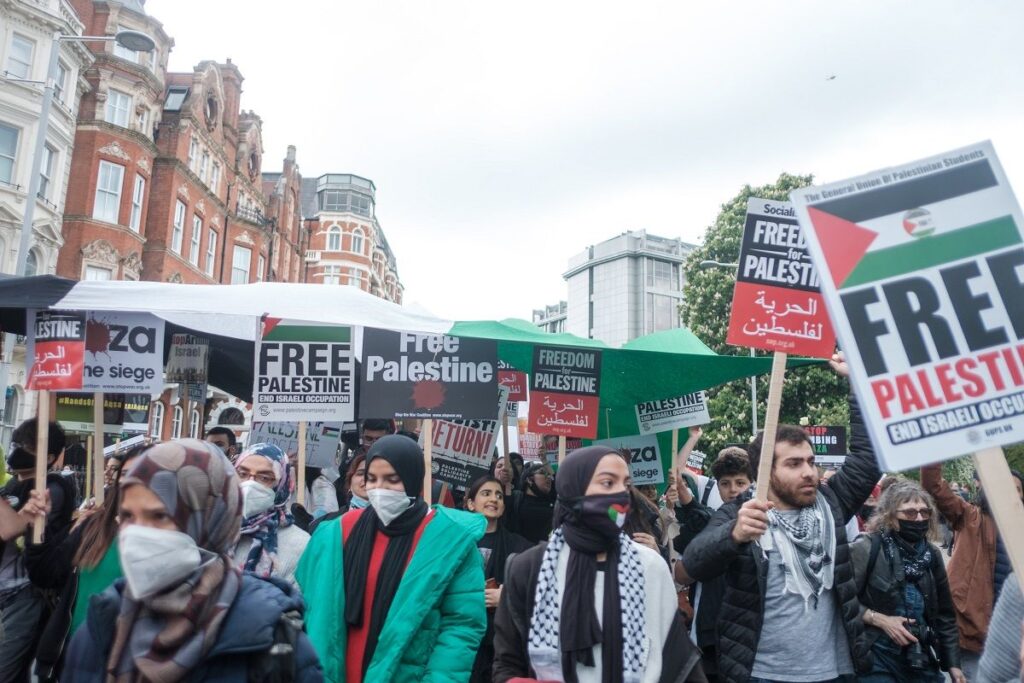The Role Social Media Plays in Social Activism for Palestine

By: Yaara Aleissa / Arab America Contributing Writer
Activism Presence in Social Media
Social media has become a leading tool in social activism, especially for Palestinian activists. After the 2011 Arab uprisings the International Studies Journal cited that “Western media relied heavily for information and sources upon activists they came to trust”. Activists in the Middle East were the leading voices for their country. Portraying an experience many others cannot begin to imagine. Although, in journalism, topics have a time stamp. Once published the eyes of the media move on to something more pressing. Those in the midst of the crisis must then find individuals with the capability to bring about change to share their stories and shine the light.
This has birthed online activism and citizen journalism. Sufferers of injustice have flipped the switch and coined these key terms. Instead, telling their own news stories through social media apps. The most prominent being Instagram, Twitter, and Facebook. According to a poll by the Pew Research Center, 36% of Americans using social media use it as a means of social activism to find protests or rallies (35%), encourage others to take action (18%) or use a hashtag relating to a social movement (18%). This includes the presence of Arab American activists even if a separate demographic does not yet exist.
Interpreting Social Media Activism
Social media is a tool for spreading all forms of awareness. One of the most ongoing crises in the Middle East that continues to lack recognition from Western news sources is the occupation of Palestine. Citizens of the country are well aware of this and have taken their own action. Palestinians have recorded the stories for millions to hear. From the loss of lives to families being torn apart. Despite everything going on this is one sense of control that allows them to tell their narrative. So much so that it is considered a “number-one source of news” in Palestine.
The work of Palestinian activists reaches global spectrums, especially in the West. It then becomes very easy for people to share these posts on their personal pages until it has become a social sensation. However, by the time the message reaches the West, obstacles arise in how to accurately interpret the media.
First is understanding the level of the reporting taking place. Frequently, Middle Eastern media stands interpreted as a region “broken” “filled with corruption” and “inequalities”. Which undermines the revolutions that have advanced countries in the region through the efforts of activists. But, knowing the purpose of the post makes it all the more indifferent to what the viewer gains.
Then comes about a second issue of “performative activism”. Social media apps move through trends and that is what keeps their users active. Posts that may interject parts of the real world will not catch the eye of all users. However, some may feel inclined to post about a social issue if all their friends are.
Difficulties with Social Media Activism
One example of this is the “#freepalestine” which became very popular on TikTok. Many Palestinian youths took part in sharing the hashtag alongside playful performances. Researchers who investigated the impacts of this found that it diminished the quality of their political activism and instead, the focus remained on the playful and funny content.
Researchers are concerned that youth taking part in these playful performances do not fully understand the extent of hardship faced by Palestinians. The active use of social media has become a reason for Israel’s security authorities to persecute Palestinians. The clash between Israeli authority and Palestinian protestors is constant and the tragic cost is Palestinian lives.
Other pressing issues that remain a point of combat for Palestinian activists are censorship by social media. Active displays of pro-Palestine sentiments have been taken down by social media apps. This has further resulted in the deactivation of social media accounts known for highlighting content about Palestine.
Palestinians do not have anywhere near the same privilege of free expression that Western countries prominently display. Thus it becomes increasingly important that the use of this freedom is applied on social media. Done in a manner that does not undermine Palestinian voices but enhances them further.
Check out the Arab America Blog here!








